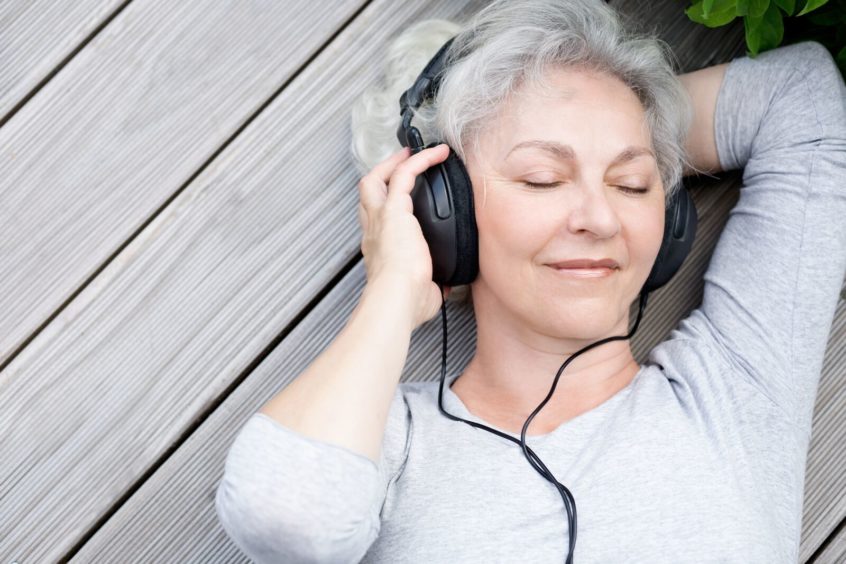If you’ve been to a rock concert at the Sprint Center or to a Chiefs football game and noticed afterward that your ears were ringing, you already may be experiencing tinnitus and hearing loss.
Long exposure to loud noises like this can damage the delicate structures of the ear. Often, this results in temporary ringing in the ears, which usually subsides after a few days. Unfortunately, though you may not realize it, you may have caused permanent damage to your hearing that may not surface until years later. That’s why it’s important to take steps to prevent hearing loss.
Louder Isn’t Better
When it comes to your hearing, louder isn’t better. Loud noises can cause permanent hearing loss and bothersome tinnitus, or ringing in the ears. Sound is measured in a unit called decibels. The lowest hearing decibel level is 0 dB, which indicates nearly total silence and is the softest sound that the human ear can hear. Generally speaking, the louder the sound, the higher the decibel number.
Exposure to sounds at 85 decibels (dB) and above can cause noise-induced hearing loss, a problem for nearly 10 million Americans. As a point of reference, a typical conversation registers at about 60 dB, while heavy city traffic is about 85 dB. Many concerts are well over 85 dB.
Here are some examples of common noises and the levels associated with them:
- Whisper: 30 dB
- Normal conversation: 60 dB
- Lawnmower: 90 dB
- Movie theater: 80-100 dB
- Live music: 100-115 dB
Proximity and Length of Exposure Increase Risk
How close you are to the sound, and how long you are exposed to it also can have an impact on whether you suffer damage to your hearing. To prevent tinnitus and hearing loss, experts recommend you wear hearing protection for any sound over 85 dB. This includes sounds many of us are exposed to every day – sporting events, a power drill, lawnmower, a jet plane taking off, fireworks or gunfire.
Ways to Prevent Hearing Loss
The American Speech-Language-Hearing Association recommends the following to prevent hearing loss:
- Place earplugs into the ear canal so that they totally block the canal. Earplugs come in different shapes and sizes, and can also be custom made by taking an impression of the ear. Earplugs can reduce noise by 15 to 30 decibels (dB) depending on how they are made and fit.
- Use earmuffs that fit completely over both ears. They must fit tightly so that sound is blocked from entering the ears. Like earplugs, earmuffs can reduce noise 15 to 30 dB depending on how they are made and fit.
- Use earplugs and earmuffs together to achieve even greater sound reduction. Use of earplugs and earmuffs is recommended when noise exposure is particularly high.
- Consider custom earplugs and musicians’ plugs if you are frequently exposed to loud noises. If you are an avid hunter or a musician, be sure to talk with an audiologist about these hearing protection devices.
- Do not listen to loud sounds for too long. If you don’t have hearing protection, move away from the loud sound and give your ears a break.
- Lower the loudness of the sound if possible. Keep personal listening devices set to no more than half volume.
- Be a smart consumer. Look for noise ratings on appliances, sporting equipment, power tools, and hair dryers. Purchase quieter products. This is especially important when purchasing toys for children.
- Be a local advocate. Some movie theaters, health clubs, dance clubs, bars, and amusement centers are very noisy. Talk with managers and those in charge about the loud noise and the potential damage to hearing. Ask to have the noise source lowered, if possible.



